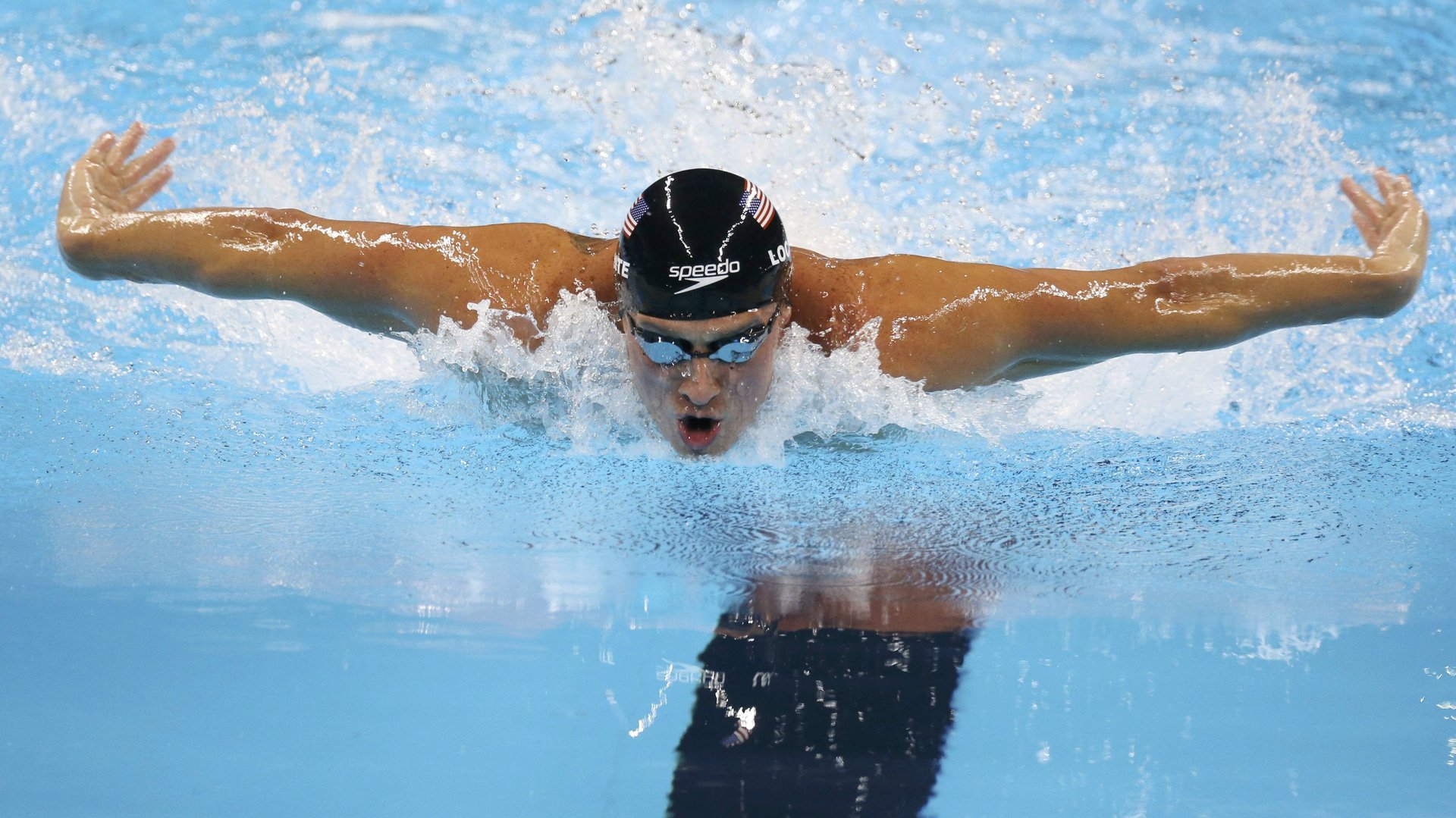What we know so far: The bizarre story behind Olympian Ryan Lochte’s claim he was mugged at gunpoint in Rio
The saga of the alleged mugging of swimmer Ryan Lochte and his teammates as they returned from celebrating their Olympic success at a rave has turned into the stuff movies are made of. Not in a good way.


The saga of the alleged mugging of swimmer Ryan Lochte and his teammates as they returned from celebrating their Olympic success at a rave has turned into the stuff movies are made of. Not in a good way.
At around 4am on Sunday (Aug.14), Lochte’s mother told media outlets, four US athletes were robbed at gunpoint by men posing as police officers on their way back from partying at Club France. Rio authorities appeared to have doubts about the story from the beginning, accusing the swimmers of falsifying their accounts earlier in the week.
Then, during an afternoon news conference Thursday, they outright denied the account. ”No robbery was committed against these athletes. They were not victims of the crimes they claimed,” Civil Police Fernando Veloso said, the AP reported.
Furthermore, evidence of a quite different narrative began to emerge. A Brazilian police source told ABC News that “one of the swimmers was seen on CCTV footage breaking down the door to the bathroom at the gas station and fighting with a security guard” on the night of the supposed robbery. The owner of a gas station told Brazilian media (link in Portuguese) that the athletes vandalized his property, tearing an advertisement, and urinated outside, despite his pleas to use the bathroom. Time ran video footage of a gas station that shows no robbery occurring there.
The 12-time gold medalist’s rather foggy story has not stood up to scrutiny. Police say they have found “little evidence supporting the account, and say the swimmers were unable to provide key details in police interviews,” the AP reports. Officers added that they also could not find the taxi driver or witnesses from the scene. From the AP:
The group did not call the police, authorities said, and officers began investigating once they saw media reports in which Lochte’s mother spoke about the robbery. Police interviewed Lochte and one other swimmer, who said they had been intoxicated and could not remember what type and color of taxi they rode in or where the robbery happened, the police official said. The swimmers also could not say what time the events occurred.
Before Lochte’s mother spoke to news outlets, the International Olympic Committee denied the story, while the US Olympic Committee confirmed it—the first of many contradictions in the story. CCTV footage also clocked the swimmers arriving back at the Olympic village at almost 7am, taking nearly three hours to complete what should have been a 30-40 minute cab ride, according to the BBC.
As authorities investigated the mismatched accounts, a spokesman for the US Olympic Committee told the New York Times that swimmers Jack Conger and Gunnar Bentz “were removed from their flight to the United States by Brazilian authorities” for questioning, and that the committee was “gathering further information” into the matter. The pair were released after agreeing to stay in Brazil and speak with investigators, the Times reports.
Brazilian judge Keyla Blank de Cnop has also ordered (pdf, link in Portuguese) that Lochte and fellow swimmer James Feigen’s passports be seized as part of the investigation, noting that there were “contradictions” in the swimmers’ claims. Lochte has since returned to the United States, but Feigen is believed to still be in Brazil, CNN reports.
NBC’s Matt Lauer spoke with Lochte on Wednesday (Aug. 17), noting that the swimmer “softened” elements of his original account. From NBC:
Lochte initially said the robbers, posing as police, pulled the taxi over, but he told Lauer that the taxi had stopped at a gas station so the swimmers could use the bathroom. When they returned to the taxi and asked the driver to leave, Lochte said, the driver didn’t respond, and the swimmers were subsequently accosted.
Lochte also told Lauer that the gun was “pointed in my direction,” which differs from his original characterization of the gun being put to his head.
Lochte attributed his inconsistencies to a “traumatic mischaracterization” as a result of the stress of the mugging, NBC reports. His lawyer, Jeff Ostrow, told the New York Times that Lochte ”has cooperated thoroughly with the Brazilian authorities and stands behind his statement.”
On Thursday afternoon (Aug. 18), an unnamed police officer told the AP that Conger and Bentz admitted that Lochte had fabricated the story. All four swimmers involved risk being barred from the sport on account of USA Swimming’s code of conduct, which does not tolerate dishonesty and fraud. Less severe punishments include probation, suspension, or a fine or expulsion—if the organization plans to act.
A spokesman for the IOC reportedly dismissed the brewing scandal as an understandable “mistake” by kids who came to Brazil to have “fun.”